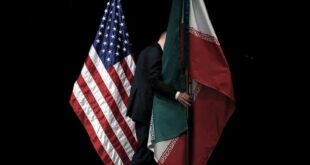The United States’ unilateralism has not only depressed the public opinion in the US, but also disappointed the world public opinion and the crisis-creating attitude of the US statesmen has caused increasing hatred among the world people, Iranian foreign minister said. According to a statement released by the Foreign Ministry’s Information and Press Bureau, Iranian Foreign Minister Manouchehr Mottaki made the remarks in a meeting with Sweden’s deputy Prime Minister and Enterprise and Energy Minister Maud Olofsson, where the two sides discussed the latest developments in the two countries’ ties and explored avenues for the consolidation of mutual relations.
He further elaborated on the potentials and latest conditions of Iran-Sweden bilateral ties, and reminded that the two sides enjoy good potentials for balancing their economic relations.
“Reinvigoration of all-out ties with the Nordics is on the agenda of the Islamic Republic of Iran,” the foreign minister stressed.
He also noted eagerness of Swedish companies for enhancing their participation in the different projects in Iran, and pointed out that holding of the two countries’ joint economic commission meeting in the near future could help deepen the two states’ ties.
Concerning regional conditions, the minister said insecurity and instability in Iraq, Afghanistan and Lebanon have resulted from wrong and worrying approaches and policies, and continued, “The United States’ unilateralism has not only depressed the public opinion in the US, but also disappointed the world public opinion and the crisis-creating attitude of the US statesmen has caused increasing hatred among the world people.”
He further briefed the other side about the history of the struggles of the Iranian people for restoring their rights during the era of nationalization of oil, and added, “The Islamic Republic of Iran is not seeking anything but restoring the inalienable rights of its nation to access scientific technologies. We are demanding access and use of nuclear energy on the basis of the rights and regulations stipulated in the Non-Proliferation Treaty (NPT) and for attaining sustainable development for our nation.”
The Iranian foreign minister also said that if talks between Iran’s top nuclear negotiator Ali Larijani and EU Foreign Policy Chief Javier Solana are conducted within the boundaries of logic and entail restoration of Iran’s national rights and if the two sides enjoy appropriate authorities, then their negotiations could yield satisfactory results.
For her part, Sweden’s deputy Prime Minister and Enterprise and Energy Minister Maud Olofsson pointed to the historical background and potentials of the two countries’ relations, and voiced pleasure in the two sides’ industrial and energy cooperation.
She further described participation of Swedish experts and companies in different projects in Iran as an indication of progress in the two countries’ exchanges.
The Swedish official also described the position of Iran’s economy, trade and market in the Middle-East as very significant and important, and expressed the hope that the two sides could take more steps through enhanced exchange of views and consultations between Iranian and Swedish traders and industry owners.
She also voiced strong support for political talks between Iran and the West to find diplomatic solutions to Iran’s nuclear case.
 Eurasia Press & News
Eurasia Press & News


